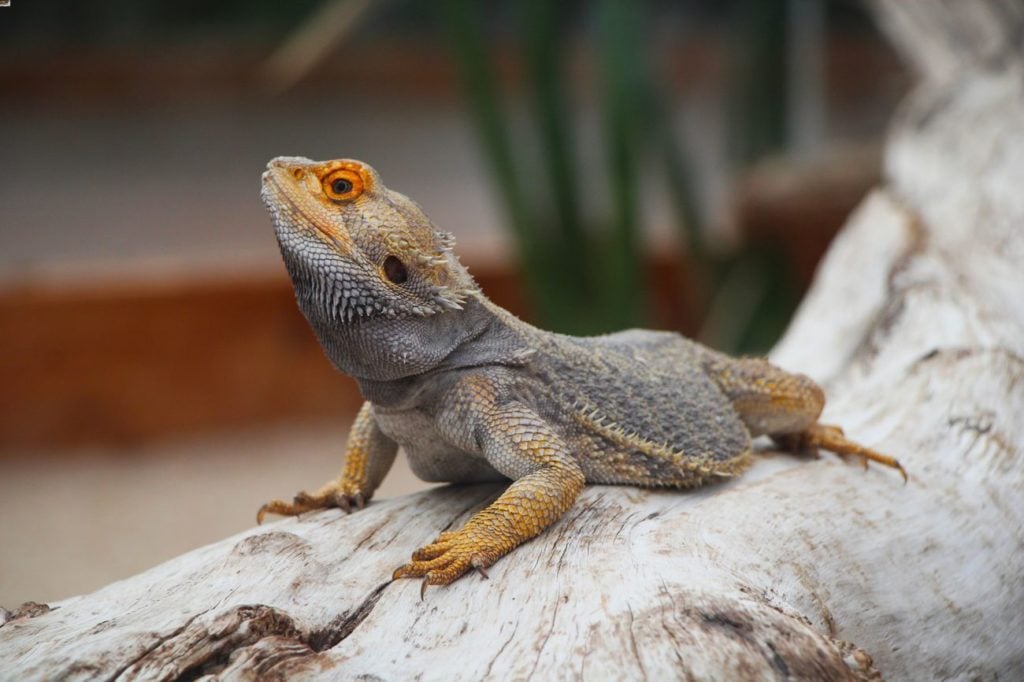
Bearded dragons, with their endearing personalities and striking appearances, are cherished companions for many reptile enthusiasts. Maximising their lifespan is a top priority for devoted owners who want to ensure their beloved pets enjoy long, healthy lives. By implementing key strategies focused on nutrition, habitat, healthcare, and enrichment, owners can create an environment that promotes optimal longevity for their bearded dragons.
Table of Contents
Nutrition: The Foundation of Longevity
A well-balanced diet is essential for maximising the lifespan of bearded dragons. Providing a diverse range of nutritionally-rich foods ensures they receive all the essential vitamins, minerals, and nutrients necessary for overall health and vitality. Juvenile dragons require a diet primarily composed of live insects, such as crickets, mealworms, and dubia roaches, supplemented with leafy greens and occasional fruits. As they mature, their diet should gradually transition to include more vegetables and fewer insects. Calcium and vitamin D3 supplementation is also crucial for maintaining bone health and preventing metabolic bone disease.
Habitat: Creating the Perfect Environment
The habitat plays a significant role in influencing the lifespan of bearded dragons. A spacious enclosure equipped with proper heating, lighting, and substrate is essential for replicating their natural habitat and supporting their physiological needs. Temperature gradients within the enclosure allow dragons to regulate their body temperature effectively, while UVB lighting promotes vitamin D synthesis and calcium absorption. Providing a variety of hiding spots, climbing structures, and basking areas enriches their environment and encourages natural behaviours, contributing to their overall well-being and longevity.
Healthcare: Proactive Monitoring and Care
Regular veterinary check-ups and proactive healthcare practices are vital for maximising the lifespan of bearded dragons. Routine examinations allow veterinarians to assess their overall health, detect any potential issues early on, and provide appropriate treatment. Owners should also monitor their dragons closely for signs of illness or injury, such as changes in appetite, lethargy, or abnormal behaviour. Maintaining proper hygiene in their habitat, including regular cleaning and disinfection, helps prevent the spread of disease and ensures a healthy living environment.
Enrichment: Stimulating Body and Mind
Enrichment activities are essential for promoting mental stimulation and physical exercise, which contribute to the overall well-being and longevity of bearded dragons. Providing opportunities for exploration, such as introducing new textures, scents, and objects into their habitat, stimulates their curiosity and engages their senses. Interactive toys, puzzle feeders, and supervised outdoor excursions also provide opportunities for mental and physical stimulation, preventing boredom and promoting a healthy lifestyle.
Conclusion: Nurturing Long, Fulfilling Lives
In conclusion, maximising the lifespan of bearded dragons requires a holistic approach that addresses their nutritional, environmental, healthcare, and enrichment needs. By providing a well-balanced diet, creating a suitable habitat, implementing proactive healthcare practices, and offering enriching activities, owners can create an environment that supports optimal longevity for their beloved pets. With proper care and attention, bearded dragons can live long, fulfilling lives, bringing joy and companionship to their owners for many years to come.
